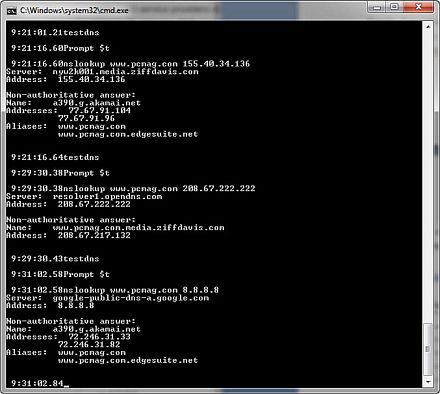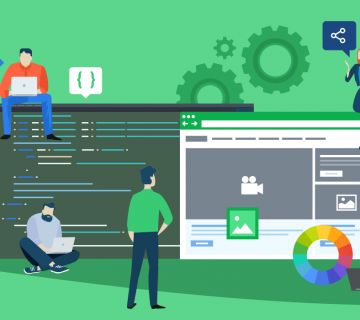
The Big Brother is at it again, this time its a gargantuan task though with it willingly trying to direct the worlds’ internet traffic in to its datacenters to give a faster web experience. Christened Public DNS, Google provides you with alternative IP addresses to direct your DNS settings to them, with an added caution that the default ISP provided settings are to be saved.
This though is still under trial run and is open to the general public with a word of caution thrown in for ISPs. As analysts try to decode the (ulterior) motives of this offer from Google, OpenDNS founder David Ulevitch welcomes this step as a positive step to speed up the web experience.
Public DNS might even utilize Google ads to place relevant ads on the redirected pages that can act as a cashcow for Google. Monetizing aside the key objective Google is embarking to achieve is in Prem Ramaswami’s words:
To enhance DNS speed but to also improve security and validity of results, Google Public DNS is trying a few different approaches that we are sharing with the broader web community.
Google is the world leader in internet search with more than 60% of worl’d search being driven from its own servers. Critics round the world have a nagging opinion that Google is stacking the user data and their search patterns to collect private information of users’ online life. The release of Public DNS further intensifies the debate on the fact that Google is trying to monopolize the entire online market.
Any peradventures in this direction are quickly warded off by Ramaswami by clearly putting out the data that will be collected and stored on the servers for future use. As he puts it:
Google Public DNS stores two sets of logs: temporary and permanent. The temporary logs store the full IP address of the machine you’re using,” the company said. “We have to do this so that we can spot potentially bad things like DDoS attacks and so we can fix problems, such as particular domains not showing up for specific users. We delete these temporary logs within 24 to 48 hours.
In the permanent logs, we don’t keep personally identifiable information or IP information. We do keep some location information (at the city/metro level) so that we can conduct debugging, analyze abuse phenomena and improve the Google Public DNS prefetching feature. We don’t correlate or combine your information from these logs with any other log data that Google might have about your use of other services, such as data from Web Search and data from advertising on the Google content network. After keeping this data for two weeks, we randomly sample a small subset for permanent storage.
I am Susan Hannan from Exams Key; it gives 100% NS0-504 exam exams. Let’s take benefit of CAP exam Exams material efficiently and get guaranteed success. Check out free demo of all certifications Exam.



